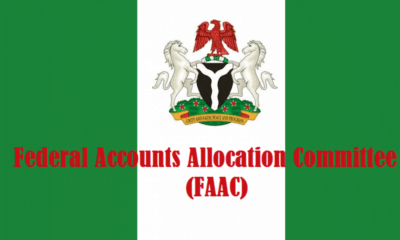There is a sharp disagreement between the Federation Account Allocation Committee (FAAC) and the leadership of the Central Bank of Nigeria (CBN) over revenues moved to the federation account between January 2006 and December 2021.
While FAAC has said the CBN disregarded its invitations to answer questions on the revenue moved to the account of the Federal Government, the apex bank reacted, saying the allocation committee lacks the power to summon it.
FAAC’s post-mortem sub-committee made this known at its monthly meeting where it provided an update on a proposed review of the FGN/CBN treasury crude account numbered 20054141287, Investors King understands.
Recall that on November 18, 2022, during FAAC plenary meeting, a consultant hired by the Nigeria Governors’ Forum had made a presentation to ascertain whether all revenues generated by ministries, department, and agencies and paid into a designated account with the CBN during the aforementioned period; were fully moved to the federation account for distribution to the federating units as provided by section 162 of the Constitution of the Federal Republic of Nigeria (as amended).
However, the NGF had referred to the FAAC sub-committee with a duty to review and report back to the forum.
In lieu of this mandate, the Post Mortem Sub-Committee (PMSC) said an ad hoc committee was constituted to handle the assignment.
The sub-committee disclosed that it invited CBN to a meeting in order to clarify and answer some questions on the movement of the revenue but the bank declined.
It said all the members of the ad hoc committee attended the inaugural meeting scheduled for Thursday, December 8, 2022, except CBN which turned down the invitation.
The committee said the CBN had argued that it is not answerable to FAAC post-mortem sub-committee but the Revenue Mobilisation Allocation and Fiscal Commission (RMAFC).
“Therefore, another letter signed by the chairman of RMAFC requesting the bank to send appropriate representatives to the meetings of the ad hoc committee to enable the sub-committee proceed with the assignment was sent, but CBN did not respond,” the sub-committee said.
“The ad hoc committee called for another meeting on Thursday, 12th January, 2022, and a letter of invitation, signed by the chairman of RMAFC was sent to CBN, yet they did not attend.
“The sub-committee has gone to this length to ensure that CBN attends the meeting because they are critical to the issue, without their participation the assignment would not proceed,” it revealed at the meeting.
Meanwhile, a Federal High Court in Abuja has summoned the Governor of the CBN, Godwin Emefiele, to appear on Wednesday (today) over a $53 million judgment debt arising from the Paris Club refunds.
Ruling on an application for garnishee made on October 20, 2022, by a Senior Advocate of Nigeria, Joe Agi, Justice Inyang Ekwo ordered Emefiele to appear on January 18 as the hearing date for the matter.
Agi’s application is against Linas International Ltd, Minister of Finance and the CBN through his lawyers, Isaac Ekpa and Chinonso Obasi.
The application is also seeking an order directing the Inspector General of Police to arrest Emefiele and bring him to court alongside his lawyers: Damian Dodo, Audu Anuga, all Senior Advocates of Nigeria, and Ginika Ezeoke, Jessica Iyoke, Abdullahi Afolayan and Olayemi Afolayan.
The suit arose over an alleged $70 million judgment against Linas over the lawyer’s services in the Paris Club refund, which Emefiele was said to have released only $17 million, leaving an outstanding $53 million.
The court had on January 23, 2020, ruled that Emefiele must appear “to be examined on oath touching the means you have or have had, since the date of the said garnishee order absolute, to pay the balance of $53 million now due and payable under the said garnishee order absolute and also show cause why you should not be committed to prison for default in payment of the said sum.”


 Billionaire Watch3 weeks ago
Billionaire Watch3 weeks ago
 Startups4 weeks ago
Startups4 weeks ago
 News4 weeks ago
News4 weeks ago
 News4 weeks ago
News4 weeks ago
 Bitcoin4 weeks ago
Bitcoin4 weeks ago
 Naira4 weeks ago
Naira4 weeks ago
 Forex3 weeks ago
Forex3 weeks ago
 Treasury Bills4 weeks ago
Treasury Bills4 weeks ago
























